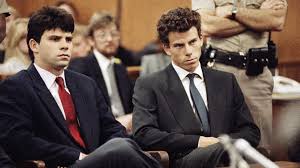The Menendez Brothers: Unraveling the Infamous Case

Introduction
The Menendez brothers, Erik and Lyle, are among the most notorious figures in American criminal history. Their shocking case, which involved the brutal murder of their parents in 1989, captivated the nation and raised complex questions about wealth, privilege, and psychological trauma. As interest in true crime continues to surge, the legacy of the Menendez brothers remains relevant in discussions about family dynamics and justice in contemporary society.
The Crimes
On the night of August 20, 1989, in Beverly Hills, California, José and Mary “Kitty” Menendez were shot to death in their home. The brothers, then ages 21 and 18, initially claimed that they were victims of a home invasion. However, days later, inconsistencies in their stories began to emerge, leading the police to suspect their involvement in the grisly crime. Eventually, Erik and Lyle were arrested and charged with first-degree murder.
The Trial
The trial of the Menendez brothers began in 1993 and quickly turned into a sensational media spectacle. During the proceedings, the brothers claimed they were abused by their parents, which prompted discussions about the impact of familial relationships and mental health on individuals. The defense argued that their actions were a result of prolonged psychological trauma inflicted by their parents. The prosecution, however, painted a different picture, depicting the brothers as spoiled and motivated by greed.
Verdict and Sentencing
The first trial ended in a deadlock, but the subsequent retrial in 1996 resulted in convictions on two counts of first-degree murder. They were sentenced to life in prison without the possibility of parole. The verdict sparked mixed public reactions, reflecting divided opinions on their culpability and the underlying issues of abuse and familial loyalty.
Legacy and Cultural Impact
The Menendez brothers’ case has left an enduring mark on American culture, leading to numerous adaptations in media, including documentaries and dramatizations. It has opened conversations about child abuse, mental health issues, and the criminal justice system. In recent years, the case has seen a resurgence of interest, with new documentaries and podcasts exploring deeper narratives and psychological evaluations of the brothers.
Conclusion
The Menendez brothers’ story serves as a reminder of the complexities surrounding crime and punishment. Their case continues to invoke discussions about the implications of privilege, the influence of familial dynamics on mental health, and the broader societal response to criminal behavior. As we reflect on their story, it is crucial to consider the psychological and social factors that contribute to such tragic outcomes, making the Menendez brothers’ case both a cautionary tale and a call for deeper understanding.








